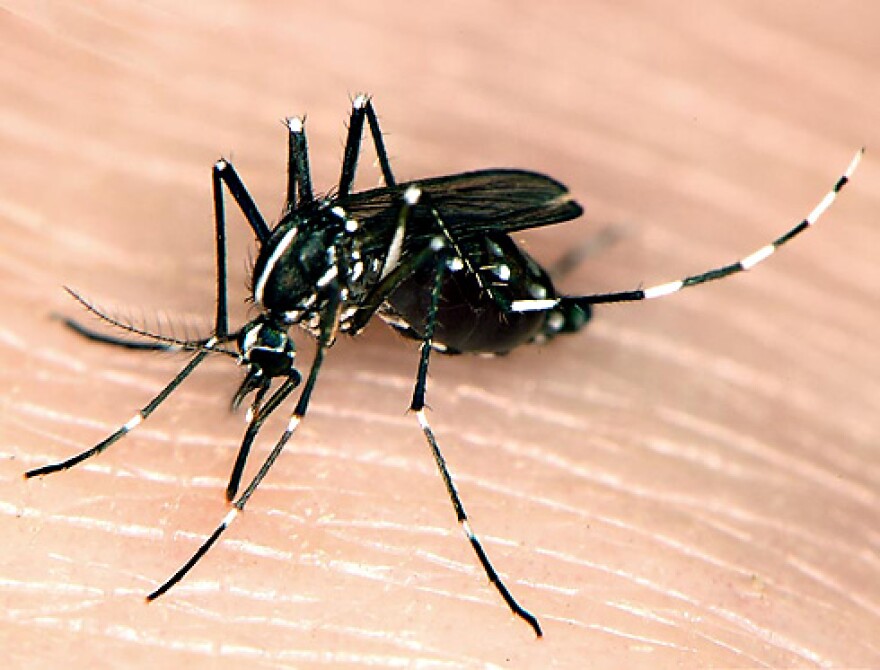Today on the Down East Journal, we explore how prepared local healthcare providers are when it comes to the uncertainty surrounding Zika infection and microcephaly in infants.
According to the North Carolina Division of Public Health, southeastern North Carolina has the highest birthrate in the state. This fact may play in favor of early detection and early intervention should Zika become a real threat here in eastern North Carolina.
Zika’s still a mystery to health experts like Dr. Keith Ramsey, a retired epidemiologist and Medical Director of Infectious Control at Vidant Medical Center in Greenville.
“It’s very frightening, you know, we all get older and want to start families, everyone wants perfect babies, or certainly close to perfect babies.”
According to a study by the Wall Street Journal, it takes a little under a quarter million dollars to raise the average child in the U.S. to adulthood. With the health and wellness complications that come with microcephaly...
“They’ve estimated maybe $5 million lifetime cost for those babies who require special care, so that’s the long term concern about it.”
Thankfully, Zika doesn’t seem likely in eastern North Carolina since the “aedesaegypti," the mosquito breed with the highest rate of Zika transmission, isn’t generally found in our region. Dr. Stephanie Richards, an entomologist and professor at East Carolina University, said even if it was, the coming winter would severely dampen its threat.
“Aedes aegypti is a sub-tropical/tropical mosquito, so it really thrives in Florida and that's a little bit more south”
Another Zika carrier, the Asian Tiger mosquito, is common in the region, but has a low transmission rate, for now. In North Carolina, additional safeguards have been put in place to keep Zika in check. Namely: the North Carolina Public Health Preparedness and Response, which monitors residents returning from endemic nations like Brazil. They work with the ZikaTaskforce, led in part by ECU.
“There have been some instances where we’ve gone out to collect mosquitoes at these people’s residences and they’ve been sent to ECU for Zika testing.”
But September is “prime time” for tropical storms, as evidenced last week with Tropical Storm Hermine. With an especially active season in the forecast, Dr. Richards urges residents to keep applying the mosquito repellant and practice safe sex with partners who may have visited Zika prone areas.
“We're always watching the weather, it's not over yet. We still have another good month or two of mosquito activity so we’re not out of the woods yet. So, we still need to remain cautious and vigilant.”
For now, that watchful state begins with screening pregnant women for the virus if they show symptoms or have traveled to Zika prone areas such as Central and South America. And, state health officials will continue to collect mosquito samples in Onslow County, the Albemarle Health District, Camp Lejeune, New Hanover County, Brunswick County, and Pitt County to make sure the Zika carrying aedesaegypti mosquito doesn’t show up here. Dr. Fernando Moya is a neonatal specialist and medical director of the New Hanover Regional Medical Center’s Children Hospital and leads a private, neonatal practice with satellite offices at four other hospitals, two of which are in Onslow County.
“Once a baby is born with microcephaly, there’s really not a lot you can do. So the emphasis needs to be placed in healthy habits.”
Moya stresses the importance of prenatal care, especially now in the wake of U.S. acquired Zika cases reported in Florida. Zika has been linked to microcephaly, a devastating condition in which a person’s head is abnormally small. Diagnosing microcephaly can be done using ultrasound late in the second trimester or early in the third trimester.
“It can either be isolated – that is, a baby’s born (and) has a normally sized body and weight and the head is proportionally much smaller. Or, it can be the baby’s just entirely small, including a small head.”
Other physical and psychological disorders are linked to microcephaly including impaired vision, seizures, and developmental delays.
“If you have microcephaly, the odds of being normal are low.”
Moya says microcephaly is rare at his practice – generally they encounter only one case out of 1,000 babies born. Zika isn’t the only cause, either. Other factors, including rubella and exposure to alcohol and certain narcotics can lead to this life-changing condition.
“There’s some genetic causes. There’s some syndromes that some genetic problems that feature microcephaly, as part of, usually, a constellation of findings. It’s usually not just isolated microcephaly and those symptoms, notoriously, do very poorly.”
However if there is a widespread outbreak of microcephaly due to Zika in our area, Moya says there will likely be an increased emphasis on preventive measures and says treatment for babies born with microcephaly will ramp up.
“The medical schools surround us. ECU to the north, Duke, Chapel Hill. We have our own pediatric neurology program here in Wilmington. So we have the availability of the specialists to help treat the manifestations or consequences of microcephaly.”
Moya believes at the moment, our medical professionals are prepared.
“I would be really hard pressed to believe that we could face really an epidemic of microcephaly because…just about the only thing that could be construed as a cause of that would be a massive spread of Zika virus.”
For now, healthcare professionals in our area seem confident in their ability to stay on top of microcephaly that develop in our general population. But with the uncertainty of how far Zika may spread in the coming months or years, it is becoming more important than ever to practice personal responsibility in protecting yourself and others.



